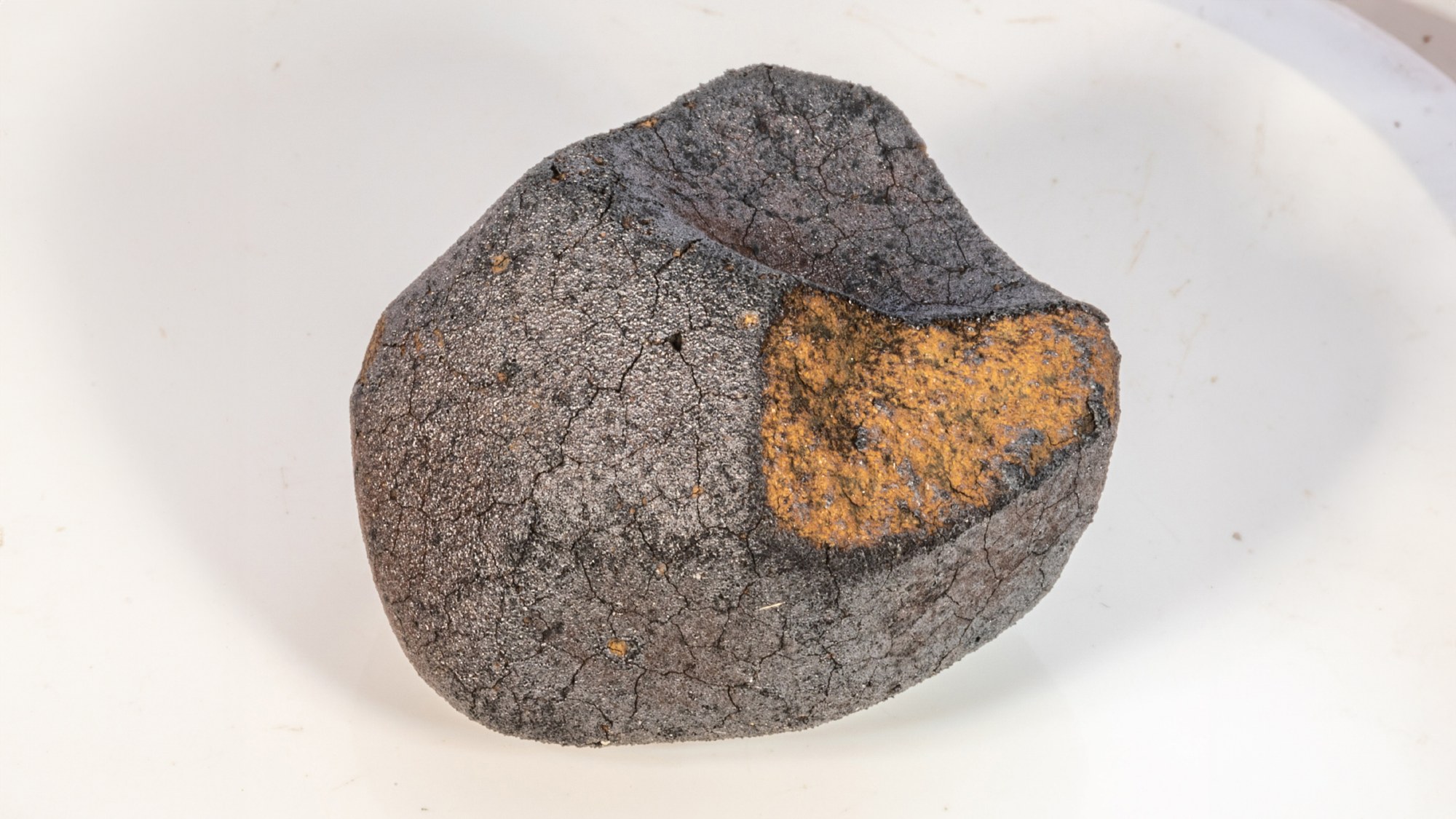The Flensburg meteorite
The Flensburg meteorite
At around midday on 12 September 2019, a meteorite fell to Earth in Weichen, a district of Flensburg in Schleswig-Holstein, Germany. It has a diameter of between 3.5 and 3.7 centimetres and weighs just under 25 grams. The sample is a rare carbonaceous chondrite of type C1 and contains minerals that only form in the presence of water, making it particularly intriguing for scientists. Analyses of the Flensburg meteorite have now made a significant contribution to finding an explanation for how asteroid parent bodies did not solely become hot, with water lost in the process. The fact that Flensburg's parent body was formed 2.7 million years after the Solar System was born shows that planetesimals were also able to form later, and at lower temperatures, meaning that water remained in the parent bodies and was later brought to Earth. Flensburg is therefore the oldest trace of fluid activity in the Solar System.
Credit:
Carsten Jonas CC BY-SA 4.0

